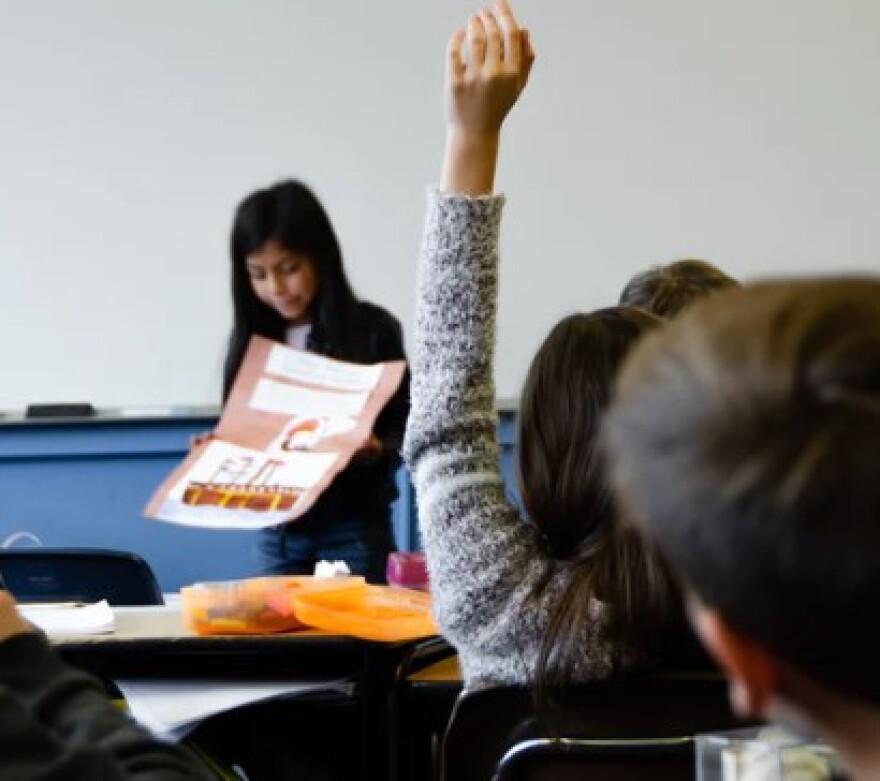This story was updated on 7/28/20
The day after President Donald Trump was elected in 2016, Royal Oak Schools was the recipient of unwelcome headlines in the media, after the release of a videotape of middle school students chanting, "Build that wall!"
A couple weeks later, a student placed a noose in a boy's bathroom.
Lisa Ze Winters is a co-founder of the group Royal Oak Multicultural Parents Association (ROMPA), which was formed in the spring of 2017.
Ze Winters says the incidents are symbolic of systemic racial equity problems in the district, including a history of harsher treatment for Black and brown students than for white students.
Ze Winters says district administrators have promised to make changes, but they've largely been window dressing, and they have dragged their feet on providing data on student disciplinary records by race.
"At this point, there's no excuse for the lack of progress," she says.
Based on 2015 data from the Michigan Civil Rights Commission, Ze Winters says Black students, who comprised only 6.8% of the student body, experienced 16.7% of total school suspensions.
She says a former student also obtained more recent data by submitting a Freedom of Information Act (FOIA) request, which showed that Black students are disproportionately disciplined for subjective rather than objective infractions, such as insubordination or disruption.
Ze Winters says the problems won't go away even if the district only offers online instruction in the fall.
"How do we hold the district accountable? How does the district make sure that students of color are not being disproportionately penalized for how they are showing up to do the work?" she asks.
The Superintendent of Royal Oak Schools says the district is working to find common ground with ROMPA as part of its Cultural Competence Engagement Committee.
Mary Beth Fitzpatrick says it does appear that Black and brown students are more often disciplined for some infractions than white students, such as insubordination, or having a cell phone in class.
She says teachers are being coached in a new way of dealing with behavior that should reduce those disparities.
"It's more of a restorative practices approach," says Fitzpatrick, "so less reactive and maybe less discipline than traditionally some people would think would happen, and more coaching the students to make these a learning opportunity for them."
Fitzpatrick says the district does not intend to make the data on discipline inequities public, however, because of concerns about student privacy.
But ROMPA says the district can't be held accountable without that transparency.
Want to support reporting like this? Consider making a gift to Michigan Radio today.



